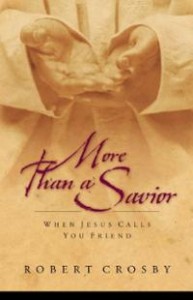Does God Have Favorites?
Jesus seemed to favor John. Somehow God playing favorites, however, doesn’t quite jibe with the theology I was raised on. The God I learned about in Sunday School is the one who shows absolute equality in his expressions of love towards all people. He doesn’t have “favorites.” God loves everyone the same. Right? The Jesus I learned about on the front pew is one who would never think of playing favorites. “Jesus loves the sinner on skid row just as much as he loves the pastor. He loves us all the same.” At least, that’s what I was told.
Still, it appears the Jesus I read about in the Bible did have a favorite, a favorite disciple, or should I say favored? If nowhere else, it shows up in John’s Gospel. On no less than five occasions, John described himself as “the disciple whom Jesus loved” (John 13:23; 19:26; 20:2; 21:7 & 20).
Clearly, if Jesus did not have a favorite disciple, John must have thought otherwise. Yes, those familiar with the Gospel narratives know that there was a select Three among the Twelve: namely, Peter, James and John. Theologians refer to them as the Triumvirate, those in whom Jesus confided more than the other Nine. They were with Christ at the peak of his glory and the depths of his despair, at the Mount of Transfiguration and in the Garden of Gethsemane. But, John was clearly the closest.
Howard Ferrin explains it this way:
If Peter and James were first among the twelve, John was first in the affection of his Lord. [Five times] in his Gospel he is designated as “the disciple whom Jesus loved.” Did not Jesus love all of His disciples? Indeed He did, but it does seem that John was more beloved by our Lord than were the other disciples. At first this thought is quite startling, but if we think deeply we have here an argument for the complete humanity of our Lord. Is it not a familiar fact that as human beings we love some more than others? We may argue against it, but even among our most intimate friends, we find those with whom we are more spiritually akin than others. If our Lord was fully man, sharing with us in all of our experiences, we should not be surprised to learn that Jesus found his “kindred soul” in John. Perhaps another reason for this lies in the fact that if Jesus was to be known as fully as possible by mortal man, there had to be one among the disciples to whom Jesus would more fully disclose Himself than to any other.
John the Beloved was that man. He held a place of high privilege in relationship to Christ. There was a level of openness and sharing which no one of John’s peers ever knew. Was that because no one else ever aspired to such a close walk? Or was it simply providentially ordained to be just that way? Was John just incredibly diligent and devoted or did he possess a unique God‑given grace? I believe the answer is yes to all of the above. John had a spiritual predisposition to being incredibly absorbent and open. And yet, this was a God‑given grace; one which he did not resist. Did others possess it as well? Perhaps. The difference with John is that he did something about it. He followed. He responded. He learned to sit at Jesus’ feet. While others talked and made idle promises, John listened. He pondered. He grew. And Jesus took notice.
John was no mild-mannered soul when Christ met him. He, in fact, entered Jesus’ life like the month of March. He blew in like a lion and out like a lamb; the stormy spirit that Jesus dubbed “son of Thunder” obviously somehow experienced Jesus speaking “peace” and his storms were calmed. It seems that not many months into their acquaintance John rounded a corner because of God’s grace and traded in a hard head for a tender and inquiring one. This bristly, head‑strong fisherman met his match in the form of a carpenter’s son. And not long after the dark night of rolling thunder expired, a ray of daylight dawned and fresh dew appeared on the landscape of one man’s surrendered soul. The Gospel of John itself reveals the depths of that soul and his unique view of the Savior.
What a joy it is when we enter into a replenishing relationship. Such a person says to us, “I am what I am by the grace of God and you are what you are by the grace of God. I accept you. I just enjoy spending time with you. Now, what would you like to talk about?” Such was John’s relationship with Jesus.
John caught something that I am convinced the other disciples missed. It was this secret which gave him the strength to follow Jesus all the way to the cross. He learned that his first ministry, his foremost duty, and his highest privilege was ministering to Jesus. John knew how to do more than just serve Jesus out of duty; he ministered not just for him, but to him as well. Is it any wonder that he came into a wholeness and freedom in seeing himself as “the disciple whom Jesus loved.”
Oswald Sanders has written, “We are as close to God as we choose to be.” John exemplified this as he dared to do what others would not. While other disciples sat around the table at the Last Supper, John dared to lean his back against the Savior’s. He came close to Jesus. When everyone else fled the impending scene of Calvary’s cross, John dared to journey down the Via Dolorosa to the bleeding side of his Lord. While the others were worried about their own skin, the “disciple whom Jesus loved” dared to care for his mother Mary (“John, behold your mother.”).
What man could ever have a friend who would follow so closely, so completely, in the hour of blessing and the hour of devastation and not recognize how highly favored that friendship was? If requirement had been on John’s mind that day, then the sight of a Savior bloodied and humiliated would have turned John away. If reciprocity was the goal, tit for tat, the risk would be far too high and the benefit to John much too precarious; but if undying loyalty and the emotional replenishment of a friend who sticks closer than a brother were the motives, than the picture suddenly makes sense.
Was Jesus’ friendship with John the one most highly prized and favored? Did John share a place of privilege? I would think so. And I can see why.
(Adapted from More Than A Savior by Robert Crosby; Random House/Multnomah)








